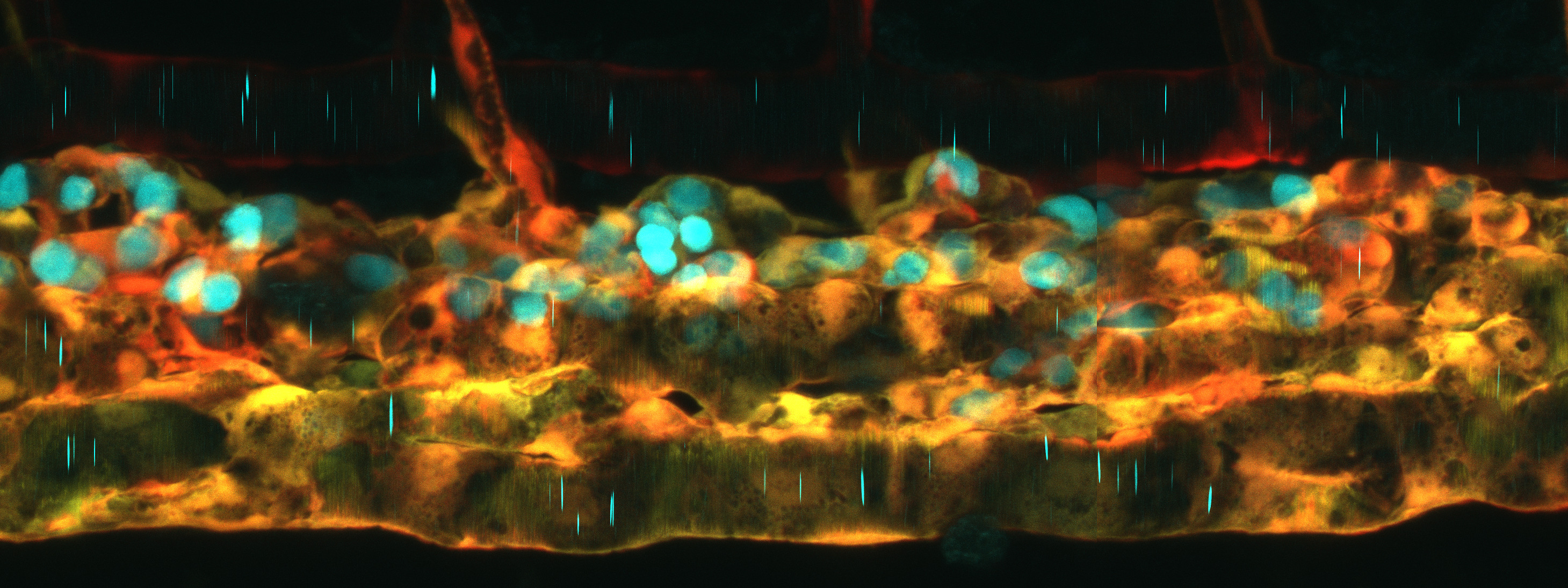Christine Beattie Awardee
The Christine Beattie travel award recognizes junior investigators who demonstrate excellence and promise as future leaders in the zebrafish research field - both of which are exemplified by the 2024 winner, Kuo-Chang (Ted) Tseng, a graduate student in Gage Crump's lab at the University of Southern California. After growing up in rural Taiwan, Kuo-Chang attended National Taiwan University (NTU). There, hands-on laboratory courses sparked his interest in research. Kuo-Chang went on to receive both his Bachelor’s and Master’s from NTU, where he characterized the role played by forkhead box protein O3A in colon cancer stem cells.
Kuo-Chang’s fascination with the cutting-edge technology of single-cell sequencing drew him to pursue his PhD in Gage Crump’s lab. Despite being largely self-taught in bioinformatic analysis, Kuo-Chang played a major role in pioneering the use of single-cell genomics in the Crump Lab. During his PhD, Kuo-Chang has made significant contributions to studies which elucidated complex cell lineages contributing to zebrafish development and regeneration. Specifically, Kuo-Chang used high-throughput bioinformatic techniques to profile tissues derived from the ectomesenchyme of zebrafish cranial neural crest cells. He developed an algorithm to predict epigenetic compatibility time points and lineage relationships of individual tissues, thereby identifying potential transcription factors involved in specifying different cell types. Kuo-Chang is currently working toward profiling the first single-cell resolution spatial transcriptome in zebrafish, using a system that has not been previously applied in any vertebrate. This work has significant implications for decoding transcriptional networks driving cell lineage specification.
In addition to his research accomplishments, Kuo-Chang demonstrates a commitment to the IZFS community through mentoring, engaging in collaborative projects, and actively participating in IZFC. Kuo-Chang’s eagerness to collaborate has resulted in a remarkable 6 co-author publications during his PhD, and he disseminated his bioinformatic expertise by mentoring many students and members of the Crump Lab. At this year’s IZFC in Kyoto, Kuo-Chang gave an oral presentation titled “In toto recording of cranial neural crest lineage relationships in the zebrafish head”. Having been a graduate student during the pandemic, Kuo-Chang is grateful for the opportunity to have attended an international conference through IZFS and gotten his work recognized by the zebrafish research community. Looking forward, Kuo-Chang’s long-term research interests lie at the intersection of high-throughput bioinformatic technologies and target-identifying translational studies.
Congratulations Kuo-Chang!




